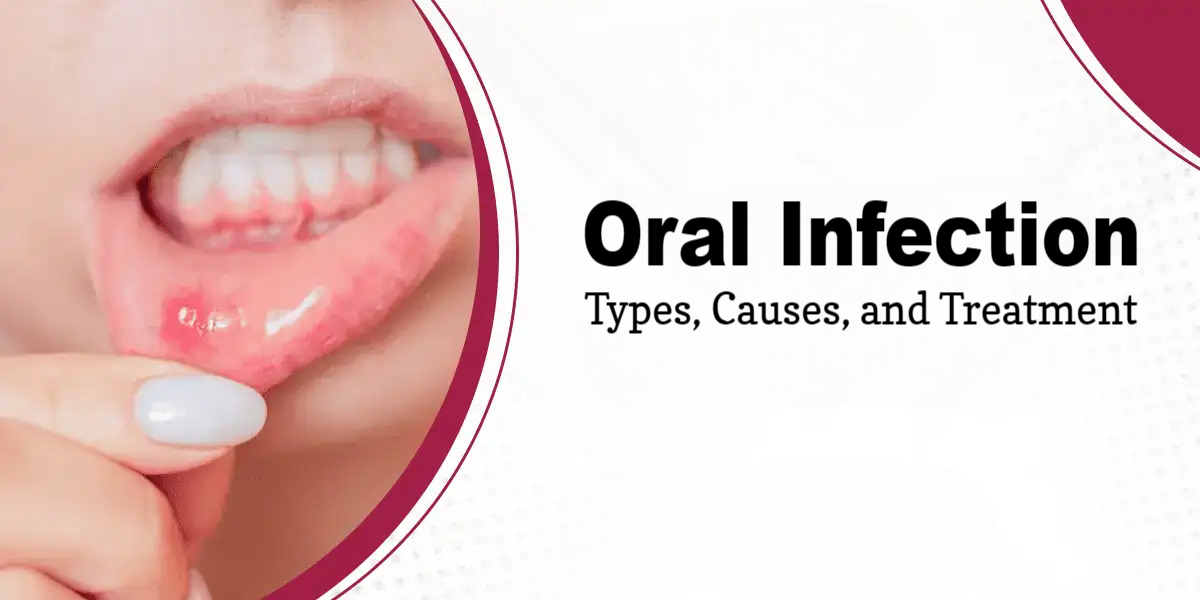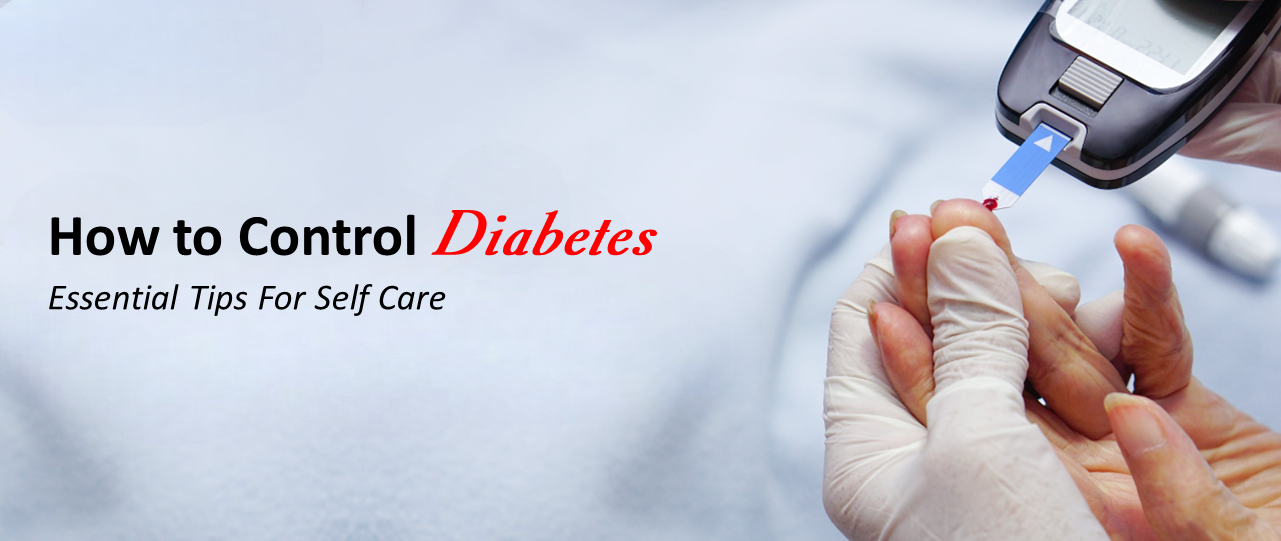Oral Infection: Types, Causes, and Treatment

Strong 8k brings an ultra-HD IPTV experience to your living room and your pocket.
Harmful bacteria, viruses, or fungi can infect the tissues of the mouth, teeth, gums, or throat, causing oral infections.
It’s often due to poor oral hygiene, injuries, or underlying health issues.
Though these are a common, it can bring serious health concerns.
Poor oral hygiene and untreated dental issues can contribute to or worsen systemic conditions.
It’s because,
Bacteria from the mouth can enter the bloodstream, especially with inflamed or damaged gums.
The chronic (long-term) inflammation is the root cause for many diseases as it can silently damage tissues and organs over time.
Moreover, gum disease is a primary source of systemic inflammation.
The oral microbiome interacts with the body’s immune system and may influence conditions throughout the body.
Recognizing the early signs, understanding the different types, and seeking timely treatment for oral infections is important for maintaining oral and overall health.
What Are the Different Types of Oral Infections?
There are several types of oral infections, each with distinct causes and symptoms
1. Bacterial Oral Infections
These happen as a result of excessive bacterial growth in the mouth.
Common bacterial oral infections include dental caries (cavities), abscesses, and periodontal diseases.
Dental Caries (Tooth Decay)
Destruction of tooth enamel caused by acid-producing bacteria.
• Causes: Poor oral hygiene/dental care, frequent sugar intake, and the presence of Streptococcus mutans.
• Symptoms: Toothache, bad breath, increased sensitivity to hot or cold, noticeable pits or holes (cavities) in teeth.
Dental Abscess
Accumulation of pus from a bacterial infection in the tooth or gum.
• Causes: Untreated tooth decay, gum disease, cracked tooth or trauma.
• Symptoms: Severe toothache, swelling of face or gums, fever, pus discharge, foul taste or odor.
2. Gum Infections (Gingivitis and Periodontitis)
Gum infections begin as gingivitis and if untreated, it may progress to periodontitis, a more serious condition that can damage the soft tissue and bone supporting the teeth.
Gingivitis
Early-stage gum inflammation that's reversible with good oral care.
• Causes: Plaque buildup, poor brushing/flossing, smoking, hormonal changes.
• Symptoms: Red, swollen gums; bleeding during brushing; persistent bad breath.
Periodontitis
Advanced gum disease causing permanent damage to gums and bone.
• Causes: Untreated gingivitis, buildup of tartar and bacteria under the gumline.
• Symptoms: Gum recession, loose teeth, pus, pain while chewing, chronic bad breath.
3. Viral Infections
They occur when viruses infect the tissues inside or around the mouth, causing symptoms like sores, blisters, or ulcers.
Some common viral oral infections include: Herpes Simplex Virus (HSV-1) & Hand, Foot, and Mouth Disease.
Cold Sores (Herpes Simplex Virus)
These are painful blisters filled with fluid that typically appear on or near the lips.
• Causes: Infection with Herpes Simplex Virus type 1 (HSV-1), commonly transmitted through saliva or direct skin contact.
• Symptoms: Initial tingling or itching sensations, development of blisters, formation of crusted sores, sometimes accompanied by fever and swollen lymph nodes.
Hand, Foot, and Mouth Disease
Viral illness mostly affecting children, with mouth sores and skin rash.
• Causes: Coxsackievirus, spread through direct contact or contaminated surfaces.
• Symptoms: Painful mouth ulcers, red spots or blisters on hands and feet, fever, sore throat.
4. Fungal Infections
Fungal infections usually happen when the natural balance of microorganisms in the mouth is disturbed, such as after antibiotic use, in people with weakened immune systems, denture wearers, or those with diabetes.
Oral Thrush (Candidiasis)
• Causes: Candida albicans overgrowth, antibiotics, dentures, diabetes, weak immune system.
• Symptoms: White patches inside cheeks or tongue, redness, soreness, burning sensation, difficulty swallowing.
5. Mouth Ulcer
Small, painful sores on the mucous membrane inside the mouth.
• Causes: Minor injury, stress, vitamin deficiencies (B12, iron), infections, certain medications, autoimmune conditions.
• Symptoms: Round or oval sores with a white or yellow center and red border, pain especially when eating or speaking, usually heal within 1-2 weeks.
6. Oral Cancer
Malignant growth or tumor in the mouth or throat tissues.
• Causes: Tobacco use (smoking or chewing), heavy alcohol consumption, HPV infection, prolonged sun exposure (lip cancer), poor oral hygiene.
• Symptoms: Persistent mouth sores or ulcers that don’t heal, lumps or thickening in the cheek, difficulty chewing or swallowing, unexplained bleeding, numbness, persistent pain.
Common Causes of Oral Infections
• Poor oral hygiene
• Smoking or tobacco use
• High-sugar diets that encourage bacterial growth
• Compromised immunity due to diseases like diabetes
• Stress and hormonal changes
• Use of dentures or braces without proper cleaning
• Long-term use of antibiotics
Treatment for Oral Infections
The treatment varies.
Bacterial oral infections like abscesses or gum infections require a combination of professional dental treatment and medications. Dentists may also perform procedures such as drainage of abscesses, deep cleaning (scaling), or even root canals for infected teeth.
Saltwater rinses, topical anesthetics, and anti-inflammatory gels can help relieve pain. For viral infections, doctors might recommend antiviral drugs to help manage the condition.
Oral cancer treatment typically involves surgery to remove the tumor, followed by radiation therapy or chemotherapy, depending on the stage and spread of the disease.
How to Prevent Mouth Infections Naturally?
Prevention is always better than cure.
Here are some effective ways to reduce the risk of developing oral infections naturally:
• Maintain excellent oral hygiene: Brush twice a day with fluoride toothpaste, floss daily, and use an antimicrobial mouthwash.
• Eat a balanced diet: Include plenty of fruits, vegetables, and foods rich in vitamins A, C, and E to strengthen immunity.
• Stay hydrated: A moist mouth helps flush out bacteria and reduces the risk of infection.
• Quit smoking and alcohol: These habits weaken the immune system and damage oral tissues.
• Regular dental check-ups: At least twice a year for cleanings and early detection of any issues.
Oral infections, whether mild like mouth ulcers or severe like oral cancer, should never be ignored.
Identifying the early symptoms and knowing how to treat a bacterial infection in the mouth can make a significant difference in recovery.
By being proactive, you can protect your teeth and prevent complications that may affect your overall well-being.
Note: IndiBlogHub features both user-submitted and editorial content. We do not verify third-party contributions. Read our Disclaimer and Privacy Policyfor details.




